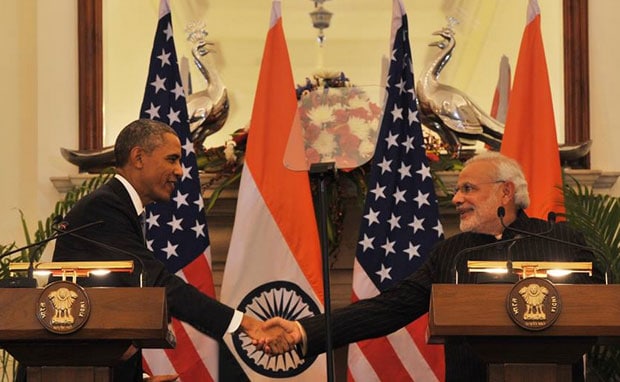
The Indian government has released details of its nuclear agreement, which was sealed in meetings between India and the US, during US President Barack Obama's recent visit to India. The two countries have come to agreement on points ranging from liability in the event of mishaps to the tracking of supplied nuclear material.
Here are some of the points, which have been made public by the Ministry of External Affairs:
On the controversial issue of tracking of supplied nuclear fissile material by the US, India has refused, saying it will only go by IAEA safeguards.
In case of a nuclear accident, the victims cannot sue the suppliers for damage. It is only the operators of a plant who can be taken to court.
This is according to the Section 46 of the Indian law - the Civil Nuclear Liability Damage Act, 2010 -- and is in line with international practices, where liability is confined to the operator.
The government said the Indian law has not been changed or amended in any way. It cited the debate on the bill in the Rajya Sabha, where two amendments that sought to include suppliers were defeated on the floor of the House.
The suppliers, however, can be held liable through the operator, who has a right to recourse under Clause 17b of the Indian law.
While this right to recourse is an option in the contract between the operator and supplier, in India's case, the operator is the Nuclear Power Corporation of India Limited (NPCIL), a public sector undertaking, which the Centre says will always exercise this option.
The deal will not place any additional burden on the Indian taxpayer over a Rs 1500 crore insurance pool to be set up by Indian companies and the government.
For the insurance of the value of Rs. 1500 crore - as mandated by the Civil Nuclear Liability Damage Act, 2010 - the consumers, at the most, will have to pay a few paise extra per unit of electricity.
"The impact of the cost of power plants on the premium payments by operator and suppliers is expected to be minimal. The international experience of 26 insurance pools is that the operators pay only a very small fraction of the total cost of the plants," the government said.
The understanding on the policy hurdles were reached between the Indo-US Nuclear Contact Group before President Obama arrived in Delhi on January 25. The last push was achieved at a meeting between President Obama and Prime Minister Narendra Modi.

